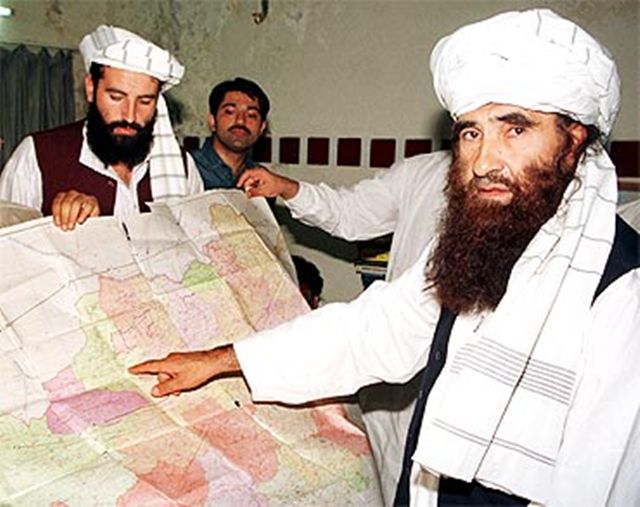
Haqqani Network Shifting from North Waziristan to Pakistan’s Kurram Agency
Publication: Terrorism Monitor Volume: 8 Issue: 45
By:

Residents in the Kurram Agency of tribal northwest Pakistan believe that the Pakistani military has once again postponed military operations in North Waziristan Agency after its plan to shift the so-called “moderate Taliban” (including the notorious Haqqani Network) was exposed and severely criticized by some elements of the Pakistani press in November. According to a Kurram Agency Shi’a leader, “the military seems to have put its plans to launch a military operation in the North Waziristan Agency on hold for now as it is no longer trying to shift their strategic assets from North Waziristan to Kurram Agency with the same vigor in anticipation of an operation in North Waziristan under US pressure. We are not sure if it is because of the criticism of this policy in the Pakistani press or the WikiLeaks revelations.” [1] The northern part of Kurram is dominated by Shi’a tribes (particularly the Bangash and Turi), while the southern half is dominated by Sunnis.
It is not only the press that has opposed the shift of Taliban fighters to new bases. When the local population in the Shalozan area of Kurram successfully resisted Taliban infiltration, there were reports of army gunships intervening to protect their “jihadist partners” (Daily Times [Lahore], November 4). There have been a number of recent attacks by gunmen in the Kurram Agency on members of the Tehrik-e-Taliban Pakistan (TTP), including one in November that killed militant commander Hikmat Shah Khoedadkhel (Nawa-e Waqt [Rawalpindi], November 9; The News [Islamabad], November 8. For background information on the Shi’a-Taliban struggle for Kurram see Terrorism Monitor, April 17).
From the Pakistani military’s viewpoint, Kurram Agency is important for two reasons. First, this agency can become a new sanctuary for the pro-military Taliban, such as the Haqqani Network. However, the second reason is more important. The Kurram Agency has served the route to Afghanistan for the mujahideen since 1980. The Kurram Agency would have fallen long ago to Taliban militants, as have other tribal agencies, if it had not been for the courage of the local Shi’a population, which has been fighting bravely against the Taliban since 2007.
NATO targeted the Taliban sanctuaries in Kurram with helicopter strikes in September, which resulted in the death of some Pakistani soldiers and created a diplomatic storm between Pakistan and NATO nations. It is now clear that the Haqqani Network was using the village of Mata Sangar in Kurram to carry out attacks on the International Security Assistance Force (ISAF) posts in Khost, Afghanistan. Network leader Sirajuddin Haqqani was reported to be in the area at the time of the NATO attack (Daily Times, November 4). Another local Shi’a leader in Kurram said that “the slowdown in moving more Taliban from North Waziristan and elsewhere to Kurram is temporary, no matter what the reasons are. They would soon resume this in view of the strategic importance of the Kurram Agency, particularly if or when the Americans withdraw from Afghanistan.” [2]
Officials and analysts in Islamabad believe that the postponement of the military operation in North Waziristan is more likely a reaction to the Wikileaks revelations of Pakistani support for the Haqqani Network, Lashkar-e-Taiba and other groups, than the press revelations of military support for a transfer of militants from North Waziristan to Kurram. According to a senior official:
"The Pakistani army cares little about the revelations in the press. The Wikileaks disclosures are more damaging to the army’s image than to the politicians’ images. Politicians are always under attack in Pakistan. However, it is the first time that the dirty linen of the Pakistan army has been washed in the open in such a way. They are very angry. The army will evaluate the impact of the Wikileaks and rethink its strategy before it acts in North Waziristan." [3]
The Parachinar-Thall road, the Kurram Agency’s link to Pakistan, has remained effectively closed to the Shi’a population of Kurram by Army-supported blockades by the local Sunni Taliban since the sectarian battles of 2007. In a recent statement, the Pakistan military’s Inter-Services Public Relations (ISPR) announced that the Parachinar-Thall road had been opened for traffic. However, Sajid Hussain Turi, an MNA from Kurram Agency, said that the road still remains unsafe and only convoys with security can travel on the road (Dawn [Karachi] December 5). At the end of October, the Pakistani military announced its plans to close down the Parachinar-Gardez-Kabul road, the only other route out of the Kurram Agency. This virtually trapped the people of Kurram in their homeland with a pair of blockades (Daily Times, November 4). Some local analysts believe the closure of the remaining border crossings to Afghanistan is intended to compel the Shi’a tribes of Kurram to welcome the Haqqani Network. In return for allowing their presence, the Haqqanis would convince the TTP militants to allow Shi’a access to the road from Kurram to Peshawar (The News, December 12). A leading daily reported unsuccessful secret meetings in Islamabad between Haqqani Network commanders (including Qari Taj), TTP leaders (including Karim Mushtaq) and elders of the Shi’a tribes of Kurram Agency designed to reopen the Parachinar-Thall road, which would be used for the movement of TTP fighters as well as local Shi’as (Dawn, November 30).
Notes:
1. Interview with a Shi’a leader through a research assistant, Kurram Agency, December 3, 2010.
2. Interview with a Shi’a politician through a research assistant, Kurram Agency, December 6, 2010.
3. Interview with a Pakistani official through a research assistant, Islamabad, December 5, 2010.





